How Much Can You Earn with Hostgator’s Affiliate Program?
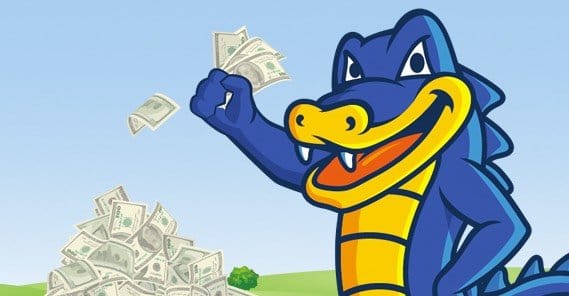
Hostgator is one of the larger web hosts available for personal and commercial website hosting, and as such they want to maintain their dominance as much as possible. To this end, they work with a legion of affiliates to get people referred to their service. It’s simple as far as affiliate marketing goes; you sign up and they give you a link. You send people along that link, they track signups and verify them, and once they’re all verified, they pay you.
The big question is, how much do they pay? Are there restrictions on those payments? Are they known for not paying, or failing to verify referrals? I’ll dig into these questions so you don’t have to.
How Much Do They Pay?
Hostgator is one of the best paying affiliate programs in the web hosting arena. Part of this comes from their volume-based commission tiers. The more you sell in a given month, the more you earn. Here’s the breakdown:
- 1-5 signups in a given month = $50 per signup.
- 6-10 signups in a given month = $75 per signup.
- 11-20 signups in a given month = $100 per signup.
- 21 or more signups in a given month = $125 per signup.
It doesn’t continue to scale from there; $125 is the maximum. Also, unlike Amazon’s referral program, it applies to all signups in a given month. You don’t have to refer 5 people at $50 per in order to get the sixth at $75. If you refer six people, that’s 6x$75, or $450 in earnings for that month.
The reason they can apply the higher price to the previous commissions is because of their referral verification cycle. Unfortunately, one of the biggest problems with Hostgator is how long it takes them to pay out.
When Do They Pay?
Hostgator, being as popular as they are, puts a lot of time and effort into verification of their affiliate referrals. They manually verify the information of the people signing up, and it can’t just be for a free trial; it needs to be a real web hosting package, although it can be anything from their cheapest to their most expensive and the commissions are still the same.
You can read more about their verification and payment timing here. If you don’t want to, I’ll summarize.
Commissions enter verification at the end of the month two months after the month in which they are referred. For example, if you refer three people in January, one on the 1st, one on the 15th, and one on the 30th, all three of them will enter verification at the end of March. This gives Hostgator enough time to see that the customer is not signing up for a free trial and cancelling, or signing up for a paid program and bailing after two weeks.
In addition to verifying that the account is real, Hostgator also verifies that the account is paid up, and that your affiliate account is legitimate. This latter verification is an ongoing process; they don’t want to pay out to an affiliate scammer, so they keep an eye on your account.
When do you actually get the money? It arrives in the first week of the month following the month of verification. So your three referrals in January would be verified at the end of March, and you would be paid in the beginning of April. As per the payment scheme above, three referrals in a given month apply to the lowest tier, and thus your check would be $150.
There is additionally a minimum balance to be paid, of $100. This is high for an affiliate program, many of which have minimum balances of $20 or so. The reason, of course, is that one verified referral is worth $50 minimum. You only need two referrals to earn a check.
However, this can delay the first check from starting up with Hostgator. Let’s look at a sample calendar:
- January you refer one commission.
- February you refer three commissions.
- March you refer seven commissions. At the end of March, your January commission is verified and $50 is added to your pending payments.
- April you refer 10 commissions. At the beginning of April, you would be paid for your January commissions, except you don’t meet the minimum balance of $100, so the payment is delayed. At the end of April, your three February commissions are verified and an additional $150 is added to your pending payments.
- May you refer 12 commissions. In the beginning of May, you get a check for $200; both your January and February commissions paid out to you. At the end of May, your March commissions are verified. At 7, you reach the second tier and they each are worth $75, for a total of $525 added to your pending payments. You will get this payment at the beginning of June.
From this example, when June rolls around, you will have gotten two checks, one for $525 and one for $200, for a total of $725. However, by June you will have referred 1 + 3 + 7 + 10 + 12. The payments stacking up for that are $50 + $150 + $525 + $750 + $1200. That’s $2675, of which you’ve only been paid $725, leaving an unpaid and unverified balance of $1950.
Ideally, you will have a valid working relationship with Hostgator, and you will trust them, and they will trust you. There will be no issues moving forward with getting your $750 and $1200 payments over the months of July and August. However, there’s always the risk that you will violate the Hostgator Terms of Service and they will ban your account. I do not know, honestly, whether they pay out your unpaid balance or if they just void your remaining unverified referrals.
In either case, this delay is what makes it tricky to start up as an affiliate with Hostgator. You started referring people on January 1, but you didn’t receive your first payment until May, five months later. While Hostgator can be quite lucrative, the delay in payments leads many people to declare them a scam after two months of referrals with no payments, and they drop the program.
The moral of the story is that you have to stick with it if you want to succeed; Hostgator affiliates is a very long term project.
How Do They Pay?
After all of that, you might expect Hostgator to pay via carrier pigeon on the night of the full moon, in pieces of eight, which can only be exchanged in a shady underground bar in Moscow and only after you’ve won a high stakes game of blackjack to get past the doorman. Thankfully, it’s nothing at all like that. For one thing, why would the exchange for pieces of eight be in Moscow, of all places? It’s clearly in Sydney.
When you’re finally paid, you have two options; you can request payment via check, or via PayPal. They don’t support Google Wallet, nor do they support direct deposits into bank accounts. They also don’t allow you to directly convert unpaid balance into services or products they offer, so you can’t pay for your own hosting with the affiliate program. You’d have to get it in PayPal and then use the money to pay for your services, is all.
Do They Have a Reputation for Skimming?
One factor that I mentioned above is the long delay in verification and reporting for tracked referrals. Hostgator has lost no small number of affiliate marketers due to this delay, and it has caused quite a bit of controversy. I’ve seen posts on Warrior Forum from 2012 or earlier about affiliates going unpaid, and I’ve seen posts like this one, complaining about the same thing.
So, is Hostgator shady?
For one thing, they’re obviously not a scam. No pure scam could last so long, and no scam would pay out as much as Hostgator does. Harsh Agrawal from ShoutMeLoud claims to have made over $25,000 with their program in the last four years. Others have similar or higher earnings. People do get paid.
The issue is referral skimming, and it happens on all affiliate services for all affiliate products. It’s part of why Hostgator has a long verification process, and it’s part of what keeps affiliate marketing valuable for everyone.
There’s very little difference between verification and skimming, in essence. When I refer 10 people to a service, that service wants those 10 people to be real customers. If 3 of them are bots run by some dude in Russia, they aren’t valid customers. I shouldn’t be paid for those referrals; they aren’t real. If I was paid for them, what’s to stop me from contacting that guy in Russia and paying for 100 referrals a day?
Verification is what the site uses to test visitors to make sure they’re real. If I refer those 10 people and 3 are determined to be fake, reporting will only show 7 referrals. That’s fine, that’s natural, it’s how every traffic-related program on the Internet works.
Skimming is similar, and it would happen at the same time. Say I sent in those 10 referrals, and I knew for a fact 8 of them were real people. Like, I had 8 people in the same room as me all filling out information with the link. I can verify they are real people. Then I get the report, and see that the affiliate site claims I’ve only referred 6 people. Two legitimate, real customers were dropped, and I don’t get paid for them.
Sometimes, there’s a small amount of loss through unintentional skimming. It’s possible that some of my legitimate referrals bear some of the same characteristics as fake traffic. Maybe one of them just happens to be browsing from Russia and shares an IP with a bot. Maybe one of them is using a proxy or VPN to reroute their connection, and it looks like it’s coming from a bad location.
Sometimes referrals are legitimate but are dropped because the customer cancels their account quickly or doesn’t pay. Sometimes they use fraudulent financial information too, which costs the company money and reflects poorly on me as an affiliate.
There’s also the case where a user signs up, uses the service for a couple months, and quits. Then a few months later they sign up again using the same referral link. It’s a legitimate customer, but the duplication makes it invalid.
There are a lot of reasons for legitimate users to be dropped, and a few reasons where legitimate users are caught by the filter and seem fake. It causes errors in reporting and errors in being paid for those visits. A lot of times, particularly at significant volumes, you can ignore it; there’s always a little fuzziness around the edges with these sorts of programs.
What if, though, it’s preventing you from getting one of those critical first referrals, and it can make or break your ability to be an affiliate for the first few months?
One thing I’ve noticed is that the Hostgator team is very good about going back and giving accounts a second look. They’re not opposed to re-verifying those who slipped through the cracks, and they will pay for them if it comes to it.
At the end of the day, I don’t believe that Hostgator is skimming referrals off the top. I just think that their inefficient system, with long delays that only really begin when the user pays up, makes it seem like a lot of users aren’t being counted.
There’s one way to work around this, and that’s to use CJ Affiliate or Impact Radius as a middleman. With a third party counting and verifying users, the process is streamlined, and you guarantee you get paid.
Important Elements of the Terms of Service
As an affiliate, you obviously want to avoid doing anything that can void your account, and that includes breaking their terms of service. You can read the full document here, but I’ll summarize the salient points.
- Your site is not eligible for the program if it contains unlawful, defamatory, obscene or other objectionable content. You also cannot promote a “business-opportunity program.”
- Your account can be banned if Hostgator finds your links embedded in spam content, or otherwise finds spam on your site. This includes spam email, or bulk unsolicited email messaging.
- You cannot incentivize commissions, i.e. giving out a prize for anyone who signs up.
- According to both FTC and Hostgator rules, you must disclose affiliate links.
- You cannot use pop-ups, pop-uners, or iframes for your link.
- You can use PPC ads to advertise your site, but you cannot use your affiliate link as the landing page directly. You also cannot bid on Hostgator-related keywords, as listed in the TOS in section six.
Tips for Making More with Hostgator
If, after all of this, you want to dig into Hostgator affiliate marketing, congratulations! You might be a bit of a masochist, but what affiliate marketer isn’t these days? The point is, you can make quite a bit of money. There’s no cap on the amount you can earn, so there’s plenty of incentive to be the best affiliate Hostgator has ever had.
One great tip is to offer a lot of tips and instruction on setting up a website. Offer beginners guides, offer packages, offer ebooks; it’s a lot of work setting up that content, but it’s worth it, for one reason. Hostgator only counts a conversion as valid once that user has paid for service and has uploaded files to a Hostgator server. If they buy an account but never set up a site, that referral will be stuck pending indefinitely.
Therefore, if you can package up a lot of goods, services and information to help people set up a site, it can drastically increase the validity rate of your referrals, and thus the amount you get paid. Plus, a little support goes a long way. On top of that, a lot of those other services, like CMS platforms, plugins, and others all have affiliate programs you can use as well.
Another minor way to boost your sales is to use the resources Hostgator gives you. Graphical banners are important, though I strongly recommend you test to see whether or not they work for you. You can use the banners they provide, which you can find here.
Beyond that, most any tip I could give you would come from a general affiliate marketing guide. Make a high quality site, build high quality content, attract people through organic SEO and paid ads, engage them with your content and convince them to buy hosting through Hostgator. Support them enough to get them to set up sites, and you’re good to go.

 ContentPowered.com
ContentPowered.com
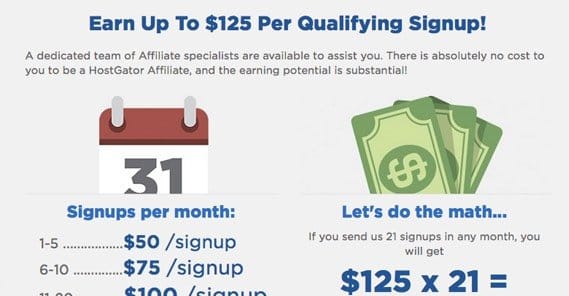
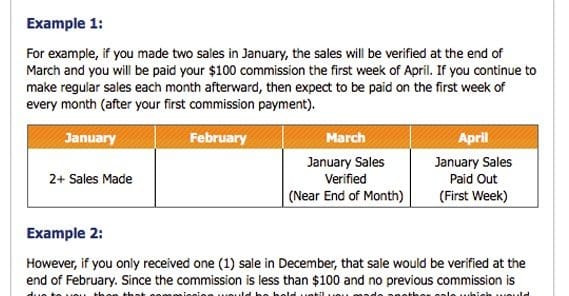
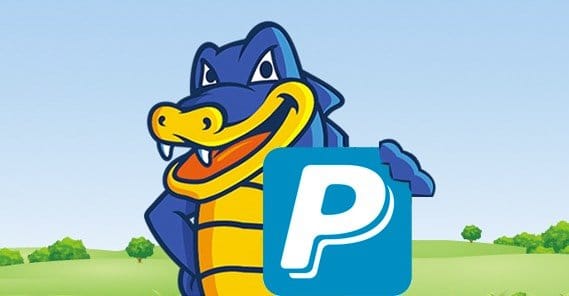

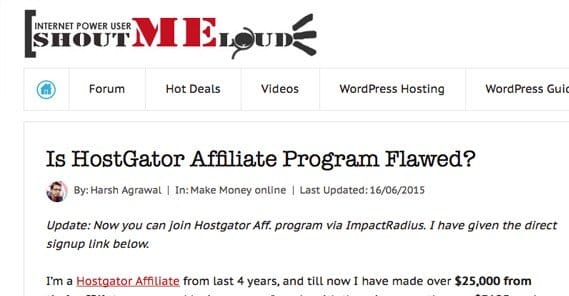


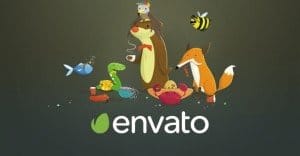

Great information here, James. I signed up with Hostgator as an affiliate but after reading the ShoutMeLoud article, I backed off. Now that you’ve added more details to the program, I think I’ll sprinkle a link or two around my site. I also like the idea of providing visitors with help in setting up a website. Thanks! Alanna